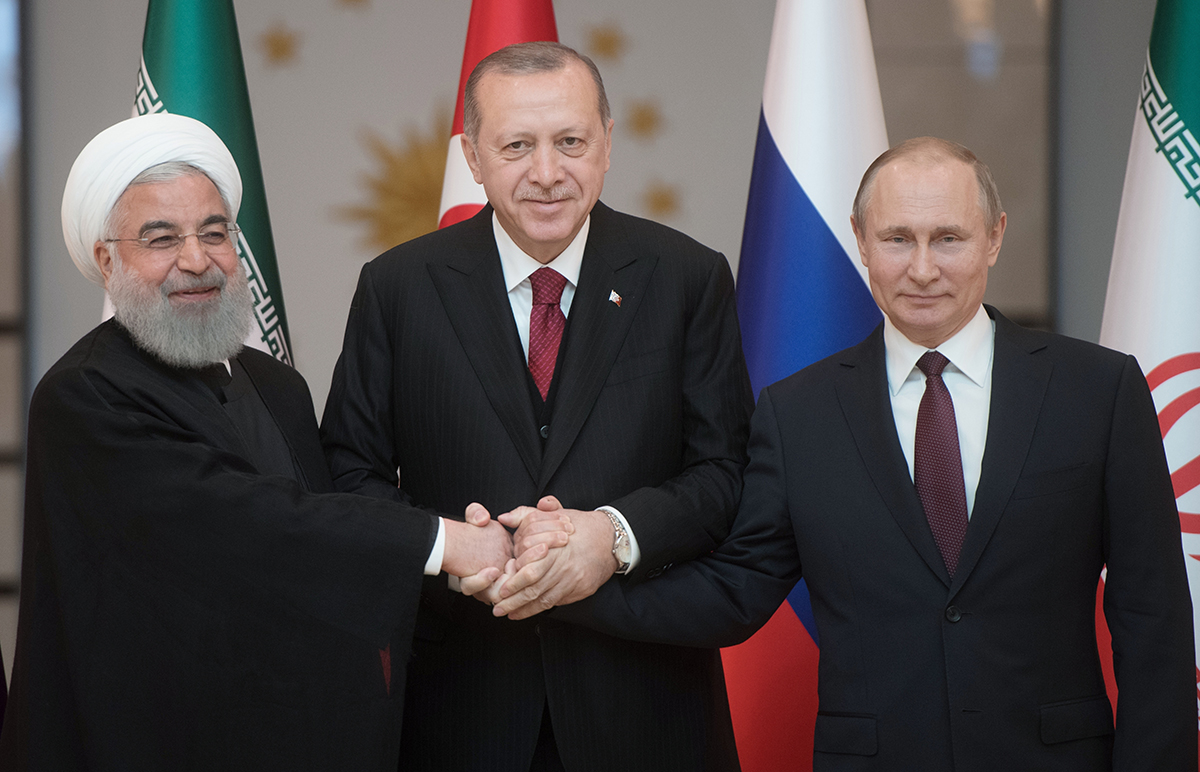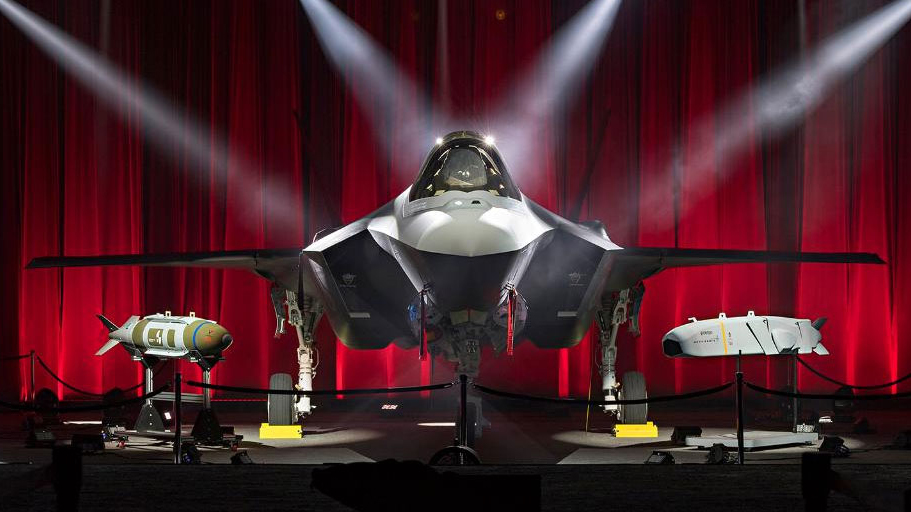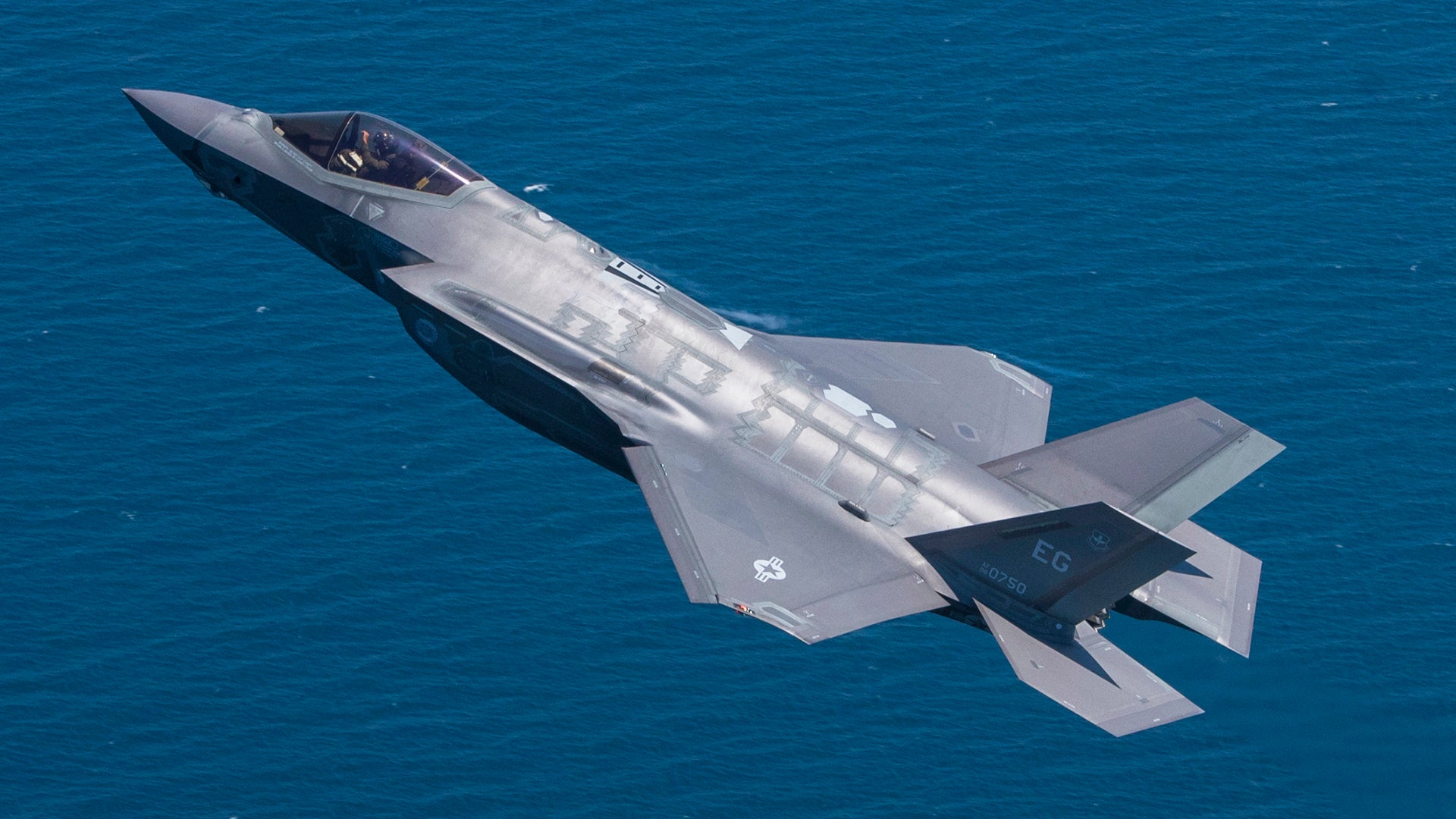The escalating F-35 saga between Ankara and Washington D.C., which you can read about here, hit a crescendo today when President Donald Trump signed the 2019 National Defense Authorization Act (NDAA) at Fort Drum in upstate New York. Language in the bill specifically stops the delivery of F-35 Joint Strike Fighters to Turkey—a NATO ally and one of the first international partners on the program dating back two decades. Turkey has plans to buy 100 of the stealthy fighters, 30 of which are already on order, and has invested $1.2B into the program so far.
The language in the law requires a written review within 90 days on Turkish-U.S. relations, including the use of Incirlik Air Base by American forces, as well as a risk assessment associated with delivering F-35s to Turkey as well as other platforms and weapons systems. It reads in part:
Assessment of impacts on other United States weapon systems and platforms operated jointly with the Republic of Turkey” for the following
(ii) the Patriot surface-to-air missile system;
(iii) the CH–47 Chinook heavy lift helicopter;
(iv) the AH–64 Attack helicopter;
(v) the H–60 Black Hawk utility helicopter; and
(vi) the F–16 Fighting Falcon aircraft.
Only once these documents are delivered can a reevaluation of the restrictions be made.
The first Turkish F-35 has already been delivered, but it will be some time before the jets actually migrate to Turkey as Turkish F-35 pilot training is just being spun up at Luke AFB in Arizona.

Secretary of Defense James Mattis was opposed to blocking the transfer on the grounds that Turkey is still a regional strategic ally of the United States and that it would add to the F-35 program’s cost and potentially disrupt its supply chain among other factors. But rhetoric emanating from Ankara doesn’t point to the possibility of a repeal of the embargo anytime soon, as both Trump and Erdogan squabble over the return of religious leaders in each other’s countries.
On August 10th, 2018 the Trump administration placed sanctions on Turkey over its unwillingness to release American pastor Andrew Brunson who has been held in a Turkish custody since 2016 after it was alleged he was involved in the failed military coup against President Erdogan. Erdogan has long claimed that the U.S. is protecting Muhammed Fethullah Gülen, which the Turkish President claims was the mastermind of the 2016 coup attempt against him, even though the cleric lives in the United States.
The sanctions have sent Turkey’s already faltering economy into a tailspin, with its currency, the Lira, taking a huge nosedive. Erdogan has stated that America’s move to impose sanctions is a “stab in the back” and his administration is working to forestall more economic damage and to stabilize the situation. He also said that “economic terrorists” will be dealt with, which apparently includes media that print negative information about the economy.
The move was a massive departure from the chummy relationship Trump and Erdogan displayed during the first year of his Presidency. Despite Erdogan descent towards tyrannical rule, he was one of the first invitees to the White House following Trump’s inauguration. During the visit that followed, not long after Trump smiled and shook hands with Erdogan in the Oval Office, his security team beat down protesters in the streets Capital while Erdogan looked on.

And all this is surplus to the original impetus behind the F-35 embargo legislation—that Turkey is buying S-400 air defense systems from Moscow—a move that could endanger the sensitive nature of the F-35’s capabilities and support architecture. Also at risk are Turkey’s industrial offsets and participation related to the program that is said to be worth around $12B in total.
The Daily Sabah states that Alp Aviation, AYESAS, Kale Aviation, Kale Pratt & Whitney, and Turkish Aerospace Industries are all producing components for the F-35 program. By some accounts, it could take up to two years to re-source these components to manufacturers in the U.S. or in other F-35 customer counties. In addition, one of three planned engine maintenance facilities in Europe to provide depot-level service for the F135 engine that powers the F-35 is located in Turkey. The other two will be stood up in Norway and The Netherlands.
The legislation also requires a study on the impact of the end of Turkey’s participation in the F-35 program:
C) An assessment of the Republic of Turkey’s participation in the F–35 program, including—
(i) a description of industrial participation of Turkish industry in the manufacturing and assembly of the F–35 program;
(ii) an assessment of tooling and other manufacturing materials held by Turkish industry; and
(iii) an assessment of the impacts of a significant change in participation by the Republic of Turkey in the F–35 program and the steps that would be required to mitigate negative impacts of such a change on the United States and other international program partners.
(D) An identification of potential alternative air and missile defense systems that could be purchased by the Government of the Republic of Turkey, including air and missile defense systems operated by the United States or other North Atlantic Treaty Organization (NATO) member states.
As the once tight relationship between the U.S. and Turkey fractures, Turkey continues to be pulled closer into Moscow’s orbit, especially in an economic sense—a reality that is very concerning for its NATO partners. Beyond its increasing affinity towards Russia, the F-35 and S-400 issues, and the escalating spat over the extradition of religious figures, many other issues between the Washington D.C. and Ankara persist.

These include Turkey’s stance toward the Kurds in Northern Syria, and its involvement in the ongoing war in Syria in general, its evaporating relationship with Israel, and Erdogan’s massive crackdown on political opposition and the media, just to name a few. All the while, the U.S. still runs an operational tactical nuclear storage site at Incirlik Air Base, a U.S. outpost that Turkish lawyers now want raided along with the arrest of some of America’s top military officials in the region. These demands are once again due to unsubstantiated claims that U.S. military personnel played a central role in the July 2016 coup attempt.
If there are indeed B61 nuclear bombs still stored Incirlik Air Base—we have no indication that they have been removed—it would be an incredibly nearsighted policy by the Pentagon and the Trump administration. I laid out the case for immediate removal of these weapons nearly two years ago, and at that time U.S.-Turkish relations weren’t anywhere as confrontational as they are today. At this point, the presence of these weapons at Incirlik Air Base poses an unthinkable strategic risk.
It’s possible that Trump and Erdogan could come to some agreement in the coming weeks to continue on with the F-35 program, which in The War Zone’s opinion would be incredibly foolish. But considering the issues at play now that go well beyond military hardware acquisition risk, and taking into account the personalities involved, it’s highly doubtful.

With all this in mind, Turkey seems to be on a highly accelerated trajectory away from the West, and what exactly this monumental shift will mean for the region and for the NATO alliance is extremely hard to predict.
We’ll keep you up to date as the convoluted Turkish F-35 saga continues to unfold.
Contact the author: Tyler@thedrive.com
